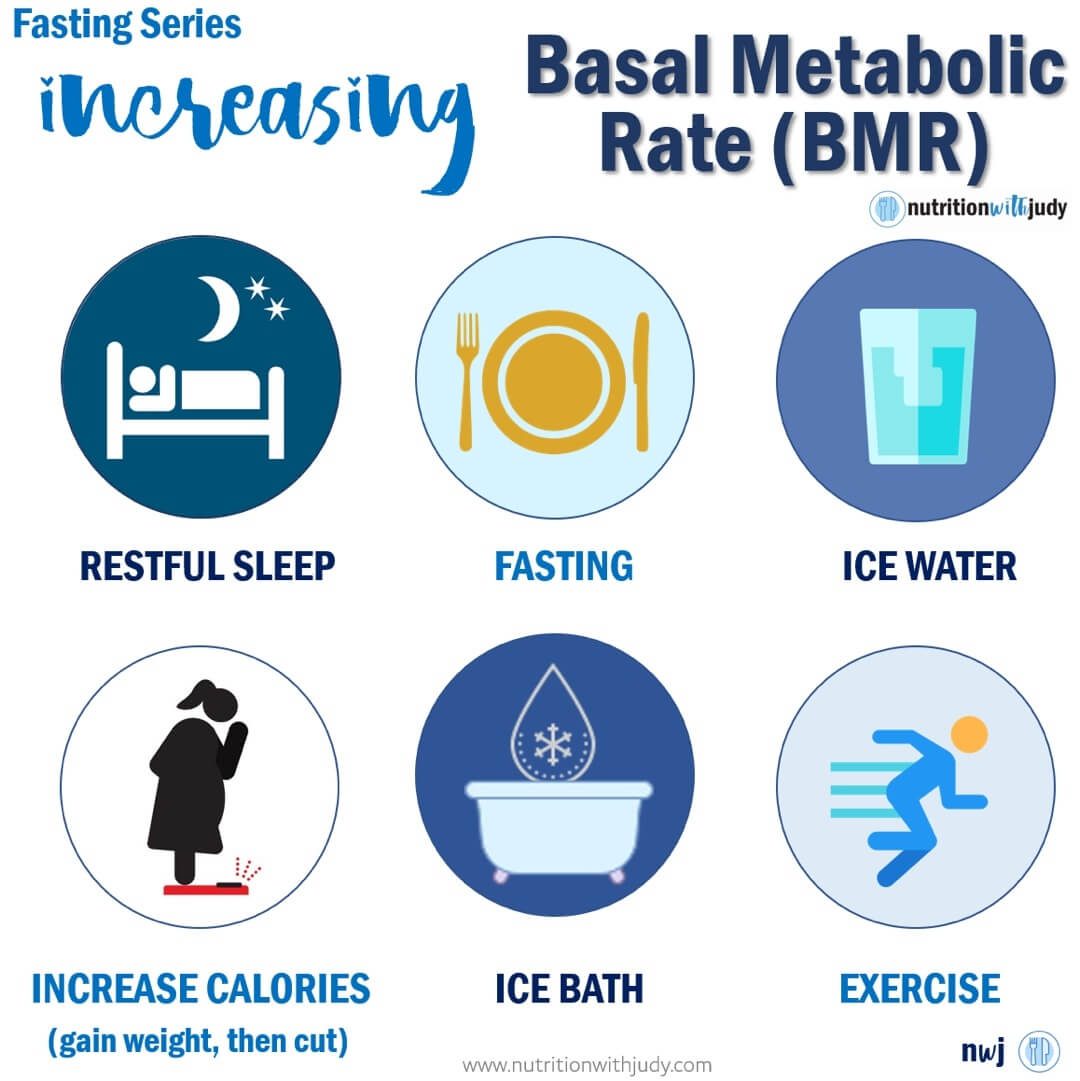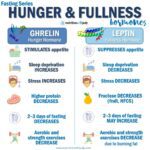

Microblog: Fasting Series – Increasing Basal Metabolic Rate


As Dr. Fung wrote, “The most important determinant of how much you eat is how hungry you are. Yes, you can deliberately eat less, but you can’t decide to be less hungry. So, if you are constantly eating less, but are still hungry, it takes a toll on you [overtime]… And the moment you let your guard down, you are going to eat more. You are constantly fighting with your own body.⠀
❗️Our metabolic rate [fluctuates 40% both ways,] depending on our hormones.⠀
⛔️Nobody decided they wanted to eat more so that they could get fat. They ate more because their hunger wasn’t satisfied. And there are many different reasons for that – mental and physiological. Cutting calories when the problem is hormonal is not going to work. And guess what? It doesn’t.”⠀
🚧One of the issues with going back to nutrient-dense healthy eating, is weight gain. This is especially true for yo-yo dieters and calorie restrictors. Our Basal Metabolic Rate (BMR) is low. Our bodies have learned to efficiently use the little calories consumed, in order to function. So, when we start eating a normal range of calories, we begin to gain weight. This is why for some on carnivore, eating to satiety can make us gain weight.⠀
🚺And since women are more prone to history of restricting calories and our hormones are more complicated, women tend to struggle to lose weight more than men.⠀
❓So how do we increase our BMR?⠀
💤 There are changes we can incorporate, such as, getting restful sleep, exercise, drinking ice water and ice baths.⠀
⏰Some propose to increase caloric intake with little exercise to increase BMR overtime. Then start cutting and exercising.⠀
🍽Fasting is another option.⠀
💡BMR changes during fasting. In a 4 day fasting study, participants dropped weight steadily. Their Resting Energy Expenditure (REE) also went up over four days of fasting.⠀
❓What does this mean?⠀
🤔If you measure how many calories you expend after four days of fasting, it’s actually 10% higher than when you started. The body ramps up in energy.



